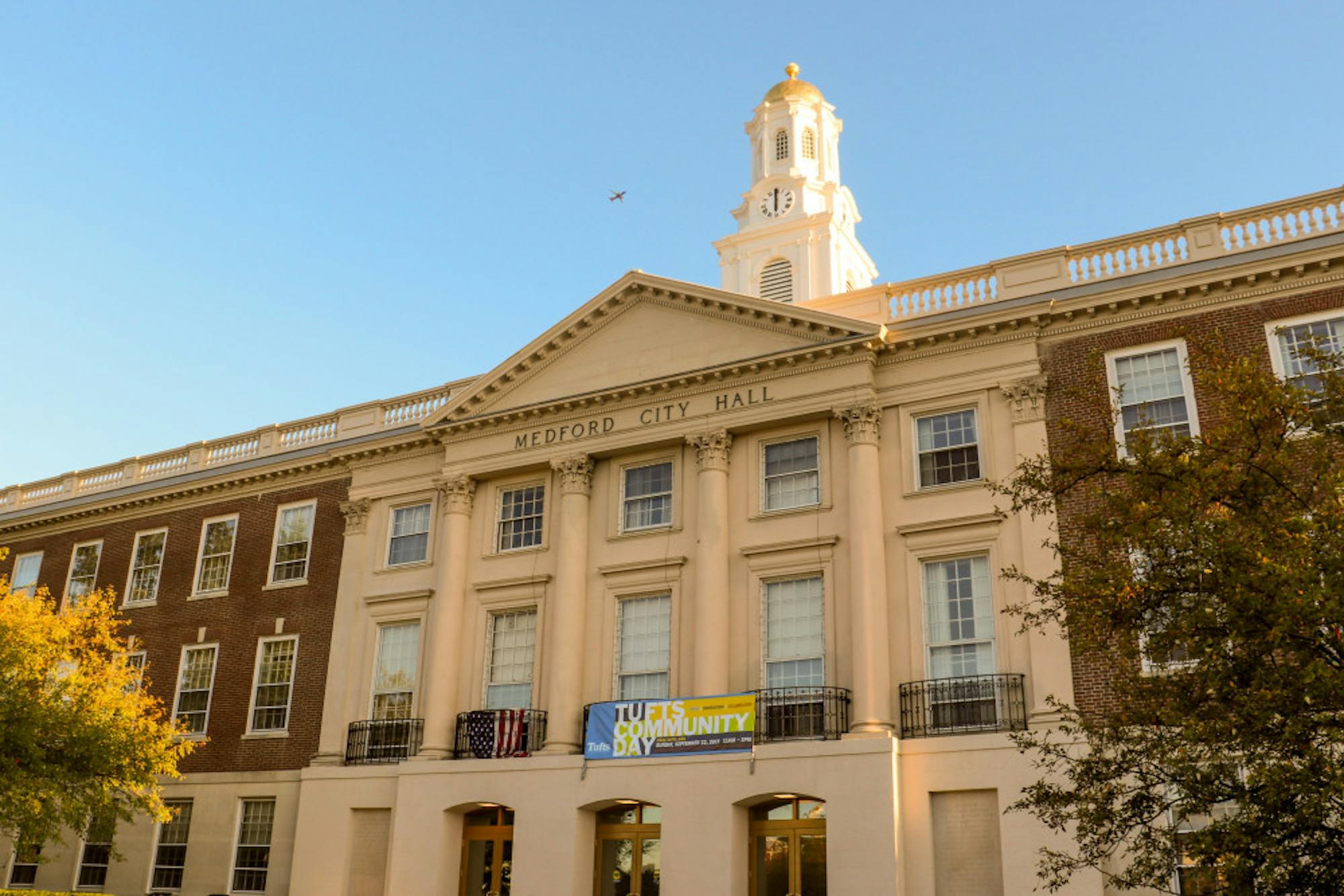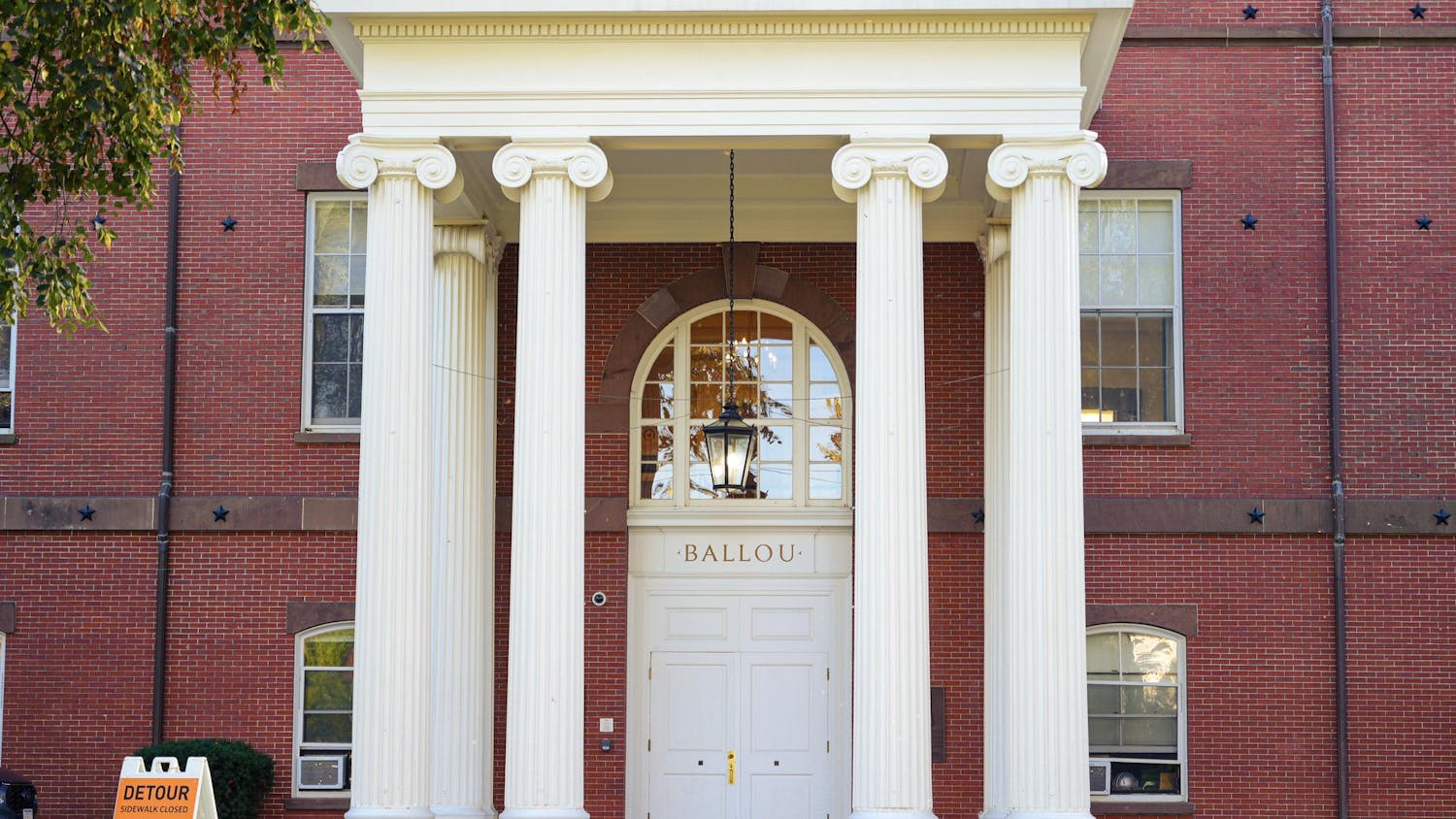Medford Mayor Breanna Lungo-Koehn was officially sworn into office last month, after oustingtwo-term incumbent former Mayor Stephanie Burke by a margin of 645 votes to become the City of Medford’s 32ndMayor.
Lungo-Koehn, the owner of a real estate brokerage and a local attorney specializing in family law, personal injury and estate planning,first ran for a seat on the Medford City Council in 2001, serving as president and vice president of that body before being elected mayor in November 2019.
During her first several years on the Council, Lungo-Koehn focused on representing the youth in the community by leading efforts to secure funding for several initiatives such as the Parks League Program, which provided free services to children during summer months, and the Make Way for Kids program.
Mea Quinn Mustone, a member of the Medford School Committee, said that she saw Lungo-Koehn’s dedication to her children’s schools.
“Last year, we both had children together at the Roberts Elementary School. I could see that her priority was volunteering at the school for her children’s classes, field trips and events,” Mustone said.
Mustone said that some of the concerns the school committee is currently addressing include efforts to staff and increase the physical capacity of seats in after-school programs and that many of the programs Lungo-Koehn has fought to secure funding for, like the Parks League Program, are extremely important.
She also added that she would love to see the city increase the amount of money allocated to the school budget.
“I wish there was a money tree right in Medford City Hall … we’re never wasting dollars when it’s for kids,” Mustone said.
Lungo-Koehn said that when she won the mayoral race she felt humbled, excited and determined to improve Medford.
“The next day I just snapped into reality that I have a lot to learn, a lot to do and I have a two-year term to do it in,” she said.
Increasing transparency was a central part of Lungo-Koehn’s mayoral campaign. She said one way to achieve this is by recording city council meetings — a practice she has already incorporated and hopes to see expand in the future across boards and commissions, as well as in the school committee.
“I think transparency is the way that cities and towns need to govern. We need to be able to communicate as much as possible that goes on,”she added.
In a recently televised City Council Committee of the Whole Meeting, a motion passed to have all the committee reports uploaded onto a Google Drive in order to allow for greater accessibility and community participation, according to Mustone.
In addition to increasing openness by recording meetings, Lungo-Koehnplans on hiring a communications director and publishing a weekly or monthly newsletter that includes updates about the city.
The implementation of the newsletter is an effort “to give the public full knowledge of what’s going on and allow residents … to get involved when they think something is great and they want to volunteer, get active, ask questions or voice concerns,” she said.
Lungo-Koehn’s office also applied for, and was awarded, grants to start a human resource department within City Hall.
“My hope is to move Medford forward in a transparent and inclusive way, to work on the issues that are facing our communities such as housing, traffic, climate change, homelessness, food security and the opioid epidemic,” she said.
Lungo-Koehn added that another issue of concern for her is the cost of housing, explaining that her office submitted a proposal to hire a consultant to assist with a housing production plan.
Looking toward Medford’s future and its potential for growth, Lungo-Koehn also emphasized the importance of having support from strong leadership.
“If I put the right people in the right positions and have a strong team in the mayor's office in City Hall, then we can get so much done for the betterment of this community,” she said.
In a letter written in May to Tufts University President Anthony Monaco and then-Medford Mayor Stephanie Burke, Lungo-Koehn offered seven suggestions for future payment in lieu of taxes (PILOT) negotiations.
“In addition to a fair financial contribution to offset the costs of services, there are synergies between Tufts and our local institutions that could be mutually beneficial,” Lungo-Koehn wrote in the letter.
PILOT is a voluntary agreement that allows untaxed nonprofits, like Tufts, to give contributions to its host communities to compensate for lost property taxes. The last PILOT agreement expired in June 2018.
“It’s not always about the money that Tufts gives Medford … the students at Tufts are a wealth of knowledge and it’ll be an asset to have more students involved in helping Medford; it’s also an opportunity [for students] to learn,” Lungo-Koehn said.
Some of the suggestions Lungo-Koehn laid out in the letter include placing two graduate interns from the Department of Environmental Policy and Planning with Medford City Halls’ planning office; making tuition free for students admitted from South Medford and parts of Somerville; partnering with lower-performing schools and leveraging Tufts’ resources to make positive change; hosting quarterly community meetings with academic leaders, the Mayor’s office, city councilors, neighborhood and business representatives.
Lungo-Koehn indicated that she is ready to get involved with Medford residents who are interested in assisting with the PILOT negotiations, which aligns with an ordinance supported by the Medford City Council that would create a group of residents to help with the negotiations.
Tufts' Director of Government and Community Relations Rocco DiRico explained that the university plans to find new and innovative ways to foster partnerships with the City of Medford under Mayor Lungo-Koehn’s leadership.
“For years, we have prided ourselves on our engagement with our host communities, the mutually beneficial relationships that we have forged with them and our support of many local organizations,” DiRicowrote in an email to the Daily.
DiRico explained that Tufts University has 2,644 employees on the Medford/Somerville campus, which makes Tufts the largest employer in Medford and that 1,574 of Tufts employees live in the university’s host communities.
DiRico said Tufts provides financial support for students at Medford and Somerville high schools by waiving the application fees for the students, paying for an SAT prep program called "Let's Get Ready" and supporting75 nonprofit organizations in its host communities, in addition to monetary contributions to Medford.
“Tufts has had a great working relationship with the city of Medford. We voluntarily increased our PILOT to Medford by 64% last year,” DiRico said.
Among more recent collaborative efforts, DiRico added that Tufts partnered with Medford and the Massachusetts Bay Transportation Authority (MBTA) to choose the name for the new Green Line station at the intersection of College Avenue and Boston Avenue in Medford that emphasized a “sense of place for both the city and the University."
DiRico also noted that the university will be making a significant donation to the Medford Public Library Foundation and intends to work collaboratively with the mayor, the Medford City Council, the Medford School Committee and the school’s neighbors to “find ways to address the issues that impact members of the Tufts community and Medford residents.”
Lungo-Koehn sworn in as Medford mayor

Medford City Hall is pictured on Sept. 16 2019.





